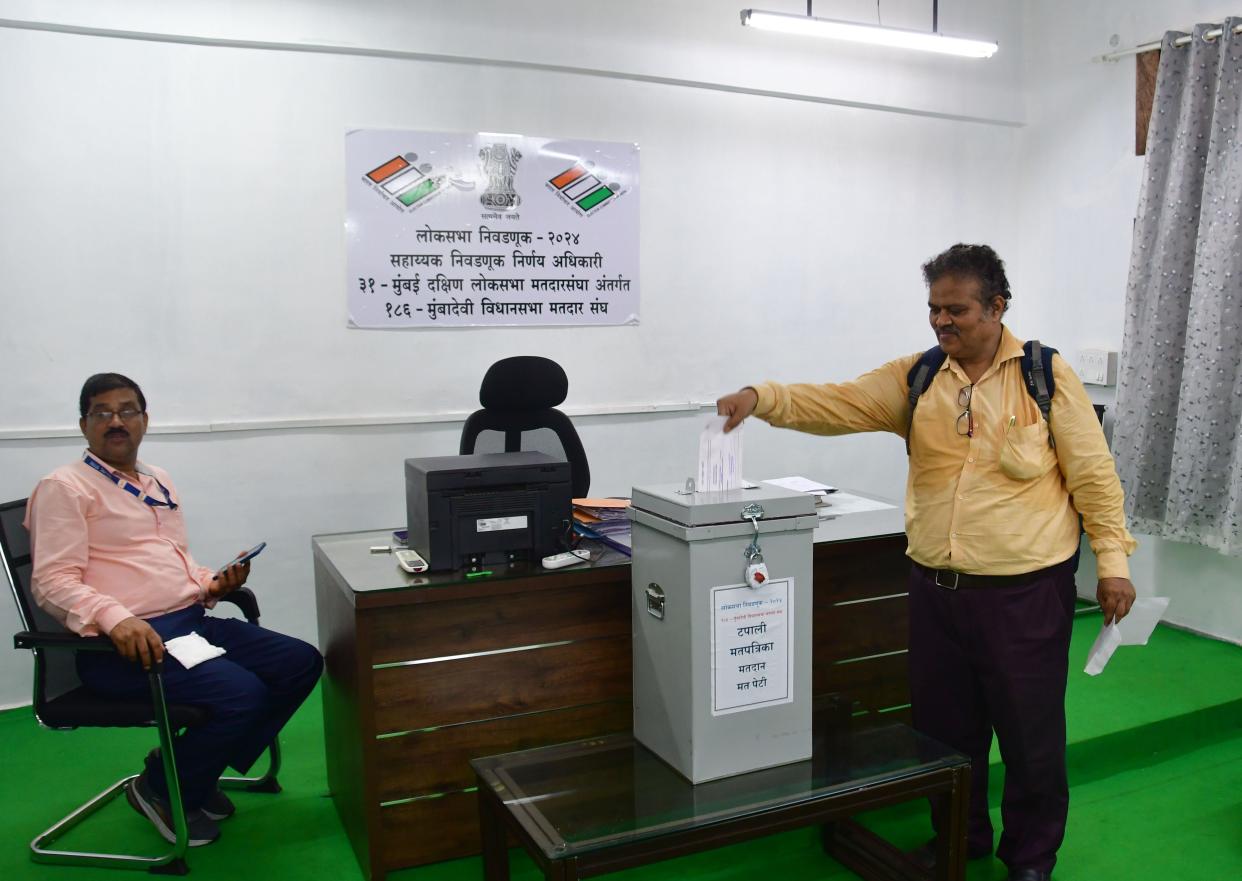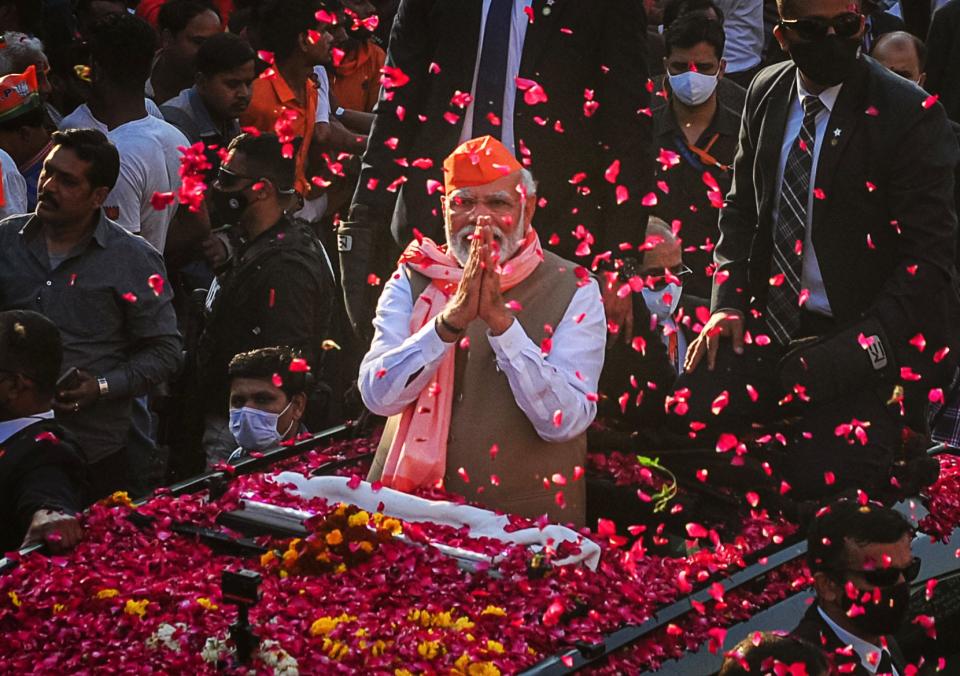Indian authorities seize over $1 billion worth of illegal vote inducements, including drugs and cash, in country's elections

- Oops!Something went wrong.Please try again later.
Indian authorities have seized over $1 billion in cash, drugs, and goods in the country's elections.
The amount has surpassed the total seized during the whole of the last general election in 2019.
The winner of the election is due to be announced on June 4.
The Election Commission of India (ECI) said it has seized 88.9 billion rupees, or around $1.1 billion, in drugs, cash, and other goods like precious metals and liquor as part of its efforts to stamp out illegal vote inducements in the country's general election.
The Indian government's Press Information Bureau said in a press release on Saturday that the "Election Commission's determined and concerted assault on money power and inducements in the ongoing Lok Sabha elections has resulted in staggering seizures worth Rs 8889 crores by the agencies."
The commission said it took a "'zero-tolerance' approach to any form of inducements which may influence the voters," adding that the haul had already surpassed the total seized during the whole of the last general election in 2019.
The press release adds that drugs have made up 45% of the value of the seizures so far.

The winner of India's general election, which began on April 19 and ends on June 1, will be announced on June 4.
The governing Bharatiya Janata Party (BJP) is expected to come out on top once again, which would see Narendra Modi, 73, return for a third term as prime minister.
It is the world's largest democratic election, with almost 970 million people eligible to vote.
During Modi's tenure, India has become an increasingly important global power, overtaking Britain to become the world's fifth-largest economy and forging ever-stronger relations with the US, which wants India as a key ally against China.
But critics of the prime minister and his party say he is a divisive figure that has attempted to demonize minorities in the country.
The Economist Intelligence Unit said in a report in May that it believed the BJP's reelection had "the potential to deepen communal rifts within the country," noting "the party's Hindu-nationalist agenda" and previous instances of unrest.
It added that "although multinationals will remain wary about India's domestic track record on communal relations, its large market and growing economy will overshadow these considerations."
Read the original article on Business Insider

